Related Research Articles
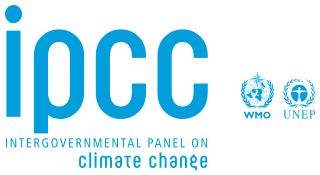
The Intergovernmental Panel on Climate Change (IPCC) is an intergovernmental body of the United Nations. Its job is to advance scientific knowledge about climate change caused by human activities. The World Meteorological Organization (WMO) and the United Nations Environment Programme (UNEP) set up the IPCC in 1988. The United Nations endorsed the creation of the IPCC later that year. It has a secretariat in Geneva, Switzerland, hosted by the WMO. It has 195 member states who govern the IPCC. The member states elect a bureau of scientists to serve through an assessment cycle. A cycle is usually six to seven years. The bureau selects experts in their fields to prepare IPCC reports. There is a formal nomination process by governments and observer organizations to find these experts. The IPCC has three working groups and a task force, which carry out its scientific work.
Gordon McBean,, is a Canadian climatologist who serves as chairman of the board of trustees of the Canadian Foundation for Climate and Atmospheric Sciences. He is a professor at the University of Western Ontario and Chair for Policy in the Institute for Catastrophic Loss Reduction. Previously he was the Assistant Deputy Minister of Meteorological Service of Canada.

Jonathan Michael Gregory is a climate modeller working on mechanisms of global and large-scale change in climate and sea level on multidecadal and longer timescales at the Met Office and the University of Reading.
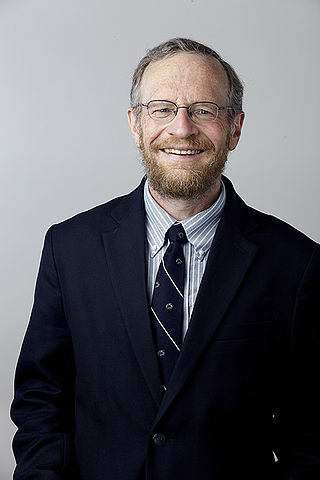
Richard Blane Alley is an American geologist and Evan Pugh Professor of Geosciences at Pennsylvania State University. He has authored more than 240 refereed scientific publications about the relationships between Earth's cryosphere and global climate change, and is recognized by the Institute for Scientific Information as a "highly cited researcher."

The IPCC Fourth Assessment Report (AR4) is a report on climate change created with the help of a large number of contributors, both scientists and governmental representatives. There has been considerable political controversy over a small number of errors found in the report, and there have been calls for review of the process used to formulate the report. The overwhelming majority view of scientists with expertise in climate change is that errors, when found, are corrected, and the issues as identified do not undermine the conclusions of the report that the climate system is warming in response to increased levels of greenhouse gases, largely due to human activities.
Kenneth Caldeira is an American atmospheric scientist. His areas of research include ocean acidification, climate effects of trees, intentional climate modification, interactions in the global carbon cycle/climate system, and sustainable energy.

Adil Najam is a Pakistani academic who also serves as the global President of WWF, the Worldwide Fund for Nature, and is Dean Emerıtus and Professor of International Relations and Earth and Environment at the Pardee School of Global Studies at Boston University. He was the founding Dean of the Pardee School from its creation in 2014 until 2022, when he was awarded the status of Dean Emeritus by Boston University. Previously he had served as vice-chancellor of the LUMS ın Lahore, Pakıstan.

Saleemul Huq was a Bangladeshi-British scientist and had been the Director of the International Centre for Climate Change & Development (ICCCAD) based in Bangladesh, also Professor at Independent University, Bangladesh (IUB). He was elected one of Nature's 10 top scientists in 2022.
Mohan Munasinghe is a Sri Lankan physicist, engineer and economist with a focus on energy, water resources, sustainable development and climate change. He was the 2021 Blue Planet Prize Laureate, and Vice-Chair of the Intergovernmental Panel on Climate Change (IPCC), which shared the 2007 Nobel Peace Prize with former Vice-President of the United States Al Gore. Munasinghe is the Founder Chairman of the Munasinghe Institute for Development. He has also served as an honorary senior advisor to the government of Sri Lanka since 1980.
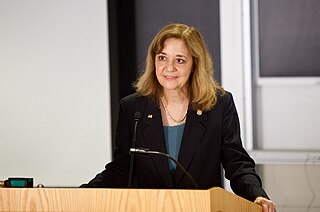
Rosina M. Bierbaum is currently the Roy F. Westin Chair in Natural Economics and Research Professor at the University of Maryland's School of Public Policy. She is also a professor and former dean at the University of Michigan School of Natural Resources and Environment (SNRE). She was hired in October 2001, by then-University of Michigan President, Lee Bollinger. She is also the current Chair of The Scientific and Technical Advisory Panel (STAP) that provides independent scientific and technical advice to the GEF on its policies, strategies, programs, and projects.
Robert W. Corell is an American global climate scientist.

Rolph Antoine Payet FRGS is an international policy expert, researcher and speaker on environment, climate and island issues, and was the first President & Vice-Chancellor of the University of Seychelles. He was Minister of Environment and Energy in the Cabinet of Seychelles from 2012 to 2014. He is currently United Nations Executive Secretary for the Basel, Rotterdam and Stockholm Convention.
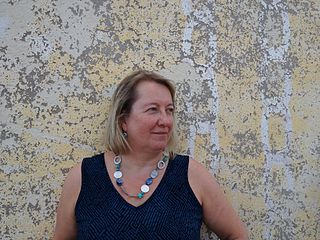
Diana Liverman is a retired Regents Professor of Geography and Development and past Director of the University of Arizona School of Geography, Development and Environment in the College of Social and Behavioral Sciences in Tucson, Arizona.

Global surface temperature (GST) refers to the average temperature of Earth's surface. It is determined nowadays by measuring the temperatures over the ocean and land, and then calculating a weighted average. The temperature over the ocean is called the sea surface temperature. The temperature over land is called the surface air temperature. Temperature data comes mainly from weather stations and satellites. To estimate data in the distant past, proxy data can be used for example from tree rings, corals, and ice cores. Observing the rising GST over time is one of the many lines of evidence supporting the scientific consensus on climate change, which is that human activities are causing climate change.
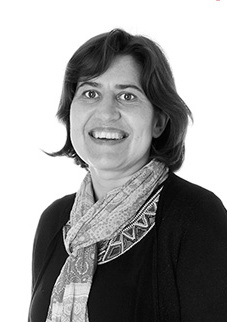
Valerie Masson-Delmotte is a French climate scientist and Research Director at the French Alternative Energies and Atomic Energy Commission, where she works in the Climate and Environment Sciences Laboratory (LSCE). She uses data from past climates to test models of climate change, and has contributed to several IPCC reports.
Diana Ürge-Vorsatz is a Hungarian scientist. She is a Vice-Chair of the IPCC, and professor of Environmental Sciences at Central European University. She is the Director of the Center for Climate Change and Sustainable Energy Policy. She has published widely on environmental and energy studies, primarily climate change mitigation.

Opha Pauline Dube is a Botswanan environmental scientist and Associate Professor in the Department of Environmental Science at the University of Botswana. She co-authored the IPCC's Special Report on Global Warming of 1.5 °C. She is one of fifteen scientists creating the 2023 Global Sustainable Development Report for the United Nations.

Ronald J. Stouffer is a meteorologist and adjunct professor at the University of Arizona, formerly Senior Research Climatologist and head of the Climate and Ecosystems Group at the Geophysical Fluid Dynamics Laboratory (GFDL), part of NOAA. He has also served on the faculty of Princeton University.

Robert Nicholls is currently the Director of the Tyndall Centre for Climate Change Research and a professor of climate adaptation at the University of East Anglia in Norwich, United Kingdom.
Maria Carmen de Mello Lemos is Professor of Environment and Sustainability and co-director of the Great Lakes Integrated Sciences and Assessments Center at the University of Michigan, Ann Arbor, and Senior Policy Scholar at the Udall Center for the Study of Public Policy at the University of Arizona. Lemos is an established climate policy analyst whose research focuses primarily on environmental public policymaking in Latin America and the U.S., especially related to climate change adaptation and adaptive capacity building.
References
- 1 2 Davis, Tony (2017-06-17). "Renowned climate scientist Jonathan Overpeck leaving University of Arizona". Arizona Daily Star. Retrieved 2023-06-30.
- 1 2 "Jonathan T. Overpeck | University of Michigan School for Environment and Sustainability". seas.umich.edu. Retrieved 2023-06-30.
- 1 2 "Nobel Peace Prize Winner has UA Connections". University of Arizona News. 2007-10-12. Retrieved 2023-06-30.
- ↑ "Three Days With Leading Climate Scientist Overpeck '79". Hamilton College. Retrieved 2023-06-30.
- ↑ https://seas.umich.edu/sites/default/files/2021-03/overpeck10PageCVMarch2021.pdf
- ↑ "President's Commission on Carbon Neutrality".
- ↑ "Ann Arbor Energy Commission talks priorities for 2022". Michigan Daily.
- ↑ "Council on Climate Solutions". Department of Environment, Great Lakes, and Energy.
- ↑ Ravelo, M. Leinen, C. (2015-07-28). "2015 Class of AGU Fellows Announced". Eos. Retrieved 2023-06-30.
{{cite web}}: CS1 maint: multiple names: authors list (link)